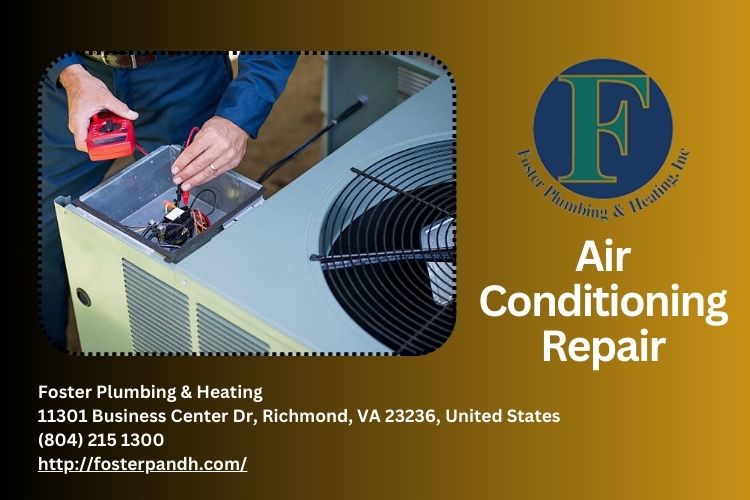Winter is just around the corner, and for those of us who rely on an efficient heating system to keep our homes warm and cozy, it's crucial to ensure that our HVAC systems are ready to tackle the chill. Preparing your HVAC for winter involves several steps that can save you from unexpected breakdowns, high energy bills, and discomfort during the cold months. In this comprehensive guide titled The Ultimate Checklist for Preparing Your HVAC for Winter, we'll walk through each essential task that will ensure your heating system runs efficiently throughout the season.
The Importance of Winter HVAC Preparation
When temperatures drop, your HVAC system becomes one of the most important assets in your home. Proper preparation not only enhances efficiency but also prolongs the lifespan of your system. Here’s why you shouldn't overlook this task:
1. Preventing Breakdowns
A well-maintained HVAC system is less likely to break down unexpectedly. Investing a little time now can save you from emergency repairs later.
2. Energy Efficiency
An efficiently running heater uses less energy, which translates to lower utility bills. You'll appreciate that extra cash when you're spending more on holiday gifts!
3. Comfort Levels
Nothing is worse than a cold house in the middle of winter due to a malfunctioning heater. Ensuring your system is up to par keeps your living space comfortable.
4. Indoor Air Quality
A clean HVAC system contributes significantly to better indoor air quality. This is particularly important during winter when windows are typically closed.
The Ultimate Checklist for Preparing Your HVAC for Winter
To help you prepare your heating system effectively, we’ve compiled a detailed checklist that covers everything you need to do before winter sets in.
1. Schedule a Professional Inspection
Before diving into DIY tasks, consider scheduling a professional inspection with Foster Plumbing & Heating or similar HVAC services near me. An expert can identify hidden issues that might lead to future problems.
" width="560" height="315" frameborder="0" allowfullscreen>
What Should You Expect During an Inspection?
- Comprehensive check of all components Testing thermostat function Cleaning ducts and filters
2. Change or Clean Filters Regularly
One of the easiest yet most impactful tasks is changing or cleaning your air filters regularly.
Why Are Clean Filters Important?
- They improve airflow Reduce energy consumption Enhance indoor air quality
3. Check Thermostat Settings
Ensure that your thermostat is set properly so it maintains a consistent temperature while being energy efficient.
Tips for Programmable Thermostats:
- Program lower temperatures during work hours Schedule it to heat up shortly before you return home
4. Inspect Ductwork for Leaks
Leaky ducts can waste significant amounts of heated air and lead to inefficiency in your HVAC system.
How Can You Check for Duct Leaks?
- Look for visible gaps or holes Use smoke pencils or incense sticks near duct seams
5. Seal Windows and Doors
Drafty windows and doors can let cold air seep in, making your heating work harder than necessary.
Best Practices:
- Use weather stripping or caulking Install storm windows if necessary
6. Clear Surrounding Areas Around Outdoor Units
If you have an outdoor unit, clear away any debris such as leaves or snow that could obstruct airflow.

Why Is This Necessary?
Obstructions can cause strain on the unit and lead to premature wear-and-tear or even failure.
7. Test Your Heating System Before It Gets Cold
Run your heating system before the first cold snap hits; this will give you an opportunity to address any issues beforehand.
Signs That Something Might Be Wrong:
- Unusual noises Inconsistent temperature changes Increased energy bills
FAQs
1. How often should I replace my HVAC filter?
It depends on usage but generally every 1–3 months is recommended, especially during heavy use seasons like winter.
2. What are signs my furnace may be failing?
Look out for unusual noises, inconsistent heating, increased energy bills, or yellowed pilot lights (for gas furnaces).
" width="560" height="315" frameborder="0" allowfullscreen>
3. Can I perform maintenance on my HVAC myself?
Yes! Simple tasks like replacing filters and checking thermostat settings can be done yourself; however, always consult professionals like Foster Plumbing & Heating for major inspections or repairs.
4. How do I improve indoor air quality during winter?
Regularly change filters, use HEPA filters if possible, ventilate occasionally even in winter, and consider using humidifiers.
5. What's involved in an HVAC inspection?
This typically includes checking all components, testing efficiency levels, cleaning ducts/filters, ensuring safety features work properly among other checks.
6. When should I schedule my annual inspection?
It's best to schedule it at least once a year before peak usage seasons—late summer or early fall works well before winter sets in!
Conclusion
Keeping up with seasonal preparations ensures that your HVAC operates smoothly Water Heater Repair near me all winter long while providing comfort and efficiency in your home environment. By following this checklist from start to finish—whether you're undertaking simple tasks yourself or reaching out to experts like Foster Plumbing & Heating—you'll find peace knowing you're prepared for whatever winter throws at you.
By adhering closely to The Ultimate Checklist for Preparing Your HVAC for Winter, not only will you protect one of your home's most critical systems but also enhance its performance while maximizing comfort throughout those chilly months ahead!
Contact Us
Foster Plumbing & Heating
Address: 11301 Business Center Dr, Richmond, VA 23236, United States
Phone: (804) 794-0912
With these insights at hand and taking action on them early enough in the season will undoubtedly help maintain not just warmth but also happiness as we embrace everything wonderful about winter!